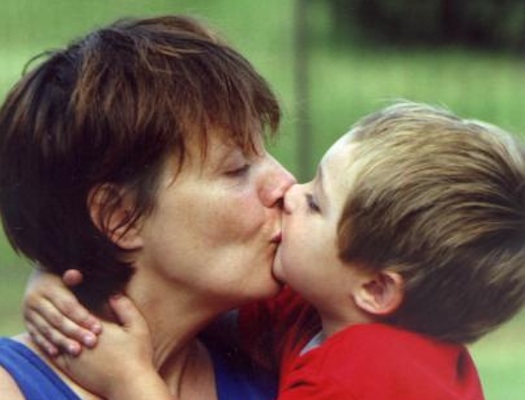

Kids these days! Strangely enough, they are less likely to have been exposed to herpes simplex virus type 1 in early childhood, according to a new study. That means they don’t get cold sores as elementary schoolers, but it also means when they become sexually active, they don’t have immunity to help protect them against the virus in… other regions of their bodies.
I remember learning in elementary school that there’s oral herpes and genital herpes and never the twain shall meet. It seems these distinctions are blurring with younger Americans, however. An increasing proportion of genital herpes infections in industrialized countries now stem from herpes simplex virus type 1 (HSV-1), or the “cold sore” virus, instead of HSV-2, which people usually get from sexual contact.
The increasing popularity of oral sex may contribute to the shift in infection types, the study’s researchers, a team from the U.S. Centers for Disease Control and Prevention, wrote in their study. Meanwhile, HSV-2 infections aren’t decreasing, so teens may be more likely to get genital herpes in general, the study reports. Both HSV-1 and HSV-2 infections last people’s entire lives and have no known cure.
Back in these teens’ parents’ time—or really, just a decade ago—most genital herpes infections came from HSV-2. On the other hand, people contracted HSV-1 as children, from skin-to-skin contact with infected adults. Kisses, sharing drinks, and other normal interactions passed to children the virus that might, in some kids, give them occasional cold sores; in others, the virus stayed dormant. Either way, the virus could trigger the body to develop immunity against contracting HSV-1 later in life, in other parts of the body.

The new study didn’t analyze why kids now get HSV-1 less often. But Marcelo Laufer, a pediatric infectious disease specialist who was not involved in the new research, told HealthDay it might be because parents now have better hygienic practices.
The CDC researchers studied herpes viruses in blood samples from Americans aged 14 to 49 in different time periods. When the researchers compared their numbers from 1999 to 2004 and 2005 to 2010, they found the frequency of HSV-1 in Americans declined by about 7 percent. HSV-2 infection rates remained the same.
The decline was most dramatic in teens aged 14 through 19. In 1999-2004, about 39 percent of teens had HSV-1. In 2005-2010, about 30 percent had the virus. Compared to teens in 1976-1980, teens in 2005-2010 were 29 percent less likely to have HSV-1.
There’s a small silver lining. Genital HSV-1 infections break out in sores less often and undergo viral shedding—the process through which the virus travels to the surface of the skin and could infect others—less often than genital HSV-2 infections.
The CDC researchers published their work yesterday in The Journal of Infectious Diseases.
[Infectious Diseases Society of America via EurekAlert, HealthDay]
Bonus: HPV Vaccine Doesn’t Make Kids More Sexually Active
In other news about the same body parts, recent studies have found kids who get the human papillomavirus (HPV) vaccine do not become sexually active at earlier ages than unvaccinated kids, according to a review in the journal Preventive Medicine. The HPV vaccine immunizes kids against many of the viruses that cause genital warts and cervical cancer. U.S. health agencies recommend girls and boys get the vaccination at age 11 or 12, but some parents have cited concerns that giving their children a vaccine against sexually transmitted infections may encourage them to have sex earlier. The review also examines evidence about the side effects and safety of the vaccine, which the authors conclude is “quite safe.”
